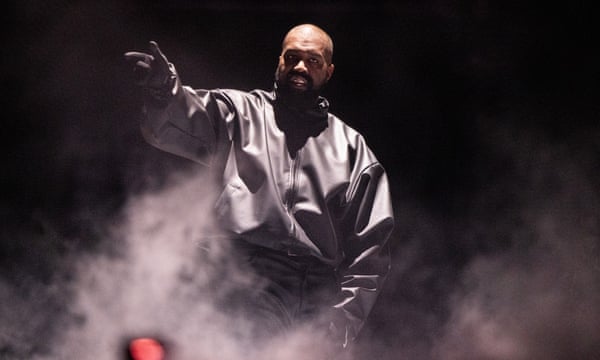"Informed AI News" is an publications aggregation platform, ensuring you only gain the most valuable information, to eliminate information asymmetry and break through the limits of information cocoons. Find out more >>
Ye's Rare Performance in China Amidst Censorship and Controversy
- summary
- score

Ye, formerly Kanye West, performed in Haikou, China, after rare approval from the country’s censors. His show, announced days before, sold out 42,000 tickets in minutes. This marked his first return to China in 16 years, a period during which the government’s tolerance for Western musicians has waned, and Ye’s controversies have multiplied.
China’s Communist party rigorously censors foreign content, often requiring artists to submit set lists and lyrics for approval. Few Western acts, including Billie Eilish, Coldplay, and Taylor Swift, have toured China in recent years. Justin Bieber and Lady Gaga were barred due to their reputations and political associations.
Ye’s approval raised eyebrows, given his history of antisemitic comments, endorsement of Donald Trump, and sexist lyrics. Haikou authorities reportedly received complaints, and a Swift fan group letter argued Ye’s content was unfit for China. Despite this, Ye’s show announcement garnered over 160 million interactions on Weibo, with many questioning the approval.
China’s economic struggles, including a property crisis and youth unemployment, contrast with rising demand for live entertainment. Ye’s concert attracted mostly out-of-province attendees, highlighting Hainan’s reliance on tourism and entertainment. Shanghai government advisers have expressed a desire to attract high-profile artists like Swift, whose tours generate significant consumer spending.
Ye’s original Taiwan show was canceled due to “unforeseen circumstances,” possibly related to China’s stance on Taiwan’s sovereignty. The decision to allow Ye’s performance in China remains a curious exception in the country’s strict cultural policies.
| Scores | Value | Explanation |
|---|---|---|
| Objectivity | 5 | Balanced reporting with comprehensive analysis. |
| Social Impact | 5 | Widely discussed, influencing public opinion. |
| Credibility | 5 | Solid evidence from authoritative sources. |
| Potential | 4 | High potential to trigger larger events. |
| Practicality | 3 | Some practicality, requires refinement. |
| Entertainment Value | 5 | Very entertaining, attracts wide audience. |